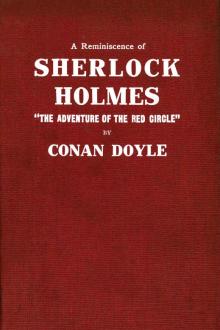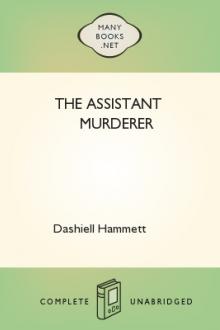Genre Mystery & Crime. Page - 16

sort of thing?" he asked. "Just say the word, if they give you trouble or cheek, and I'll have them kicked out whoever they are, from the manager downwards."
"Oh, thank you," she said hurriedly, "everybody is most polite and nice." She held out her hand. "I am afraid I must go now. A--a friend is waiting for me."
"One minute, Miss White." He licked his lips, and there was an unaccustomed embarrassment in his manner. "Maybe you'll come along one night after the show and have a little supper. You know I'm very keen on you and all that sort of thing."
"I know you're very keen on me and all that sort of thing," said Maisie White, a note of irony in her voice, "but unfortunately I'm not very keen on supper and all that sort of thing."
She smiled and again held out her hand.
"I'll say good night now."
"Do you know, Maisie----" he began.
"Good night," she said and brushed past him.
He looked after her as she disappeared into the darkness, a little frown gather

n the others! Now, Count, you are a card-player. When the other fellow has all the trumps, it saves time to throw down your hand."
"What has all this talk to do with the jewel of which you spoke?"
"Gently, Count. Restrain that eager mind! Let me get to the points in my own humdrum fashion. I have all this against you; but, above all, I have a clear case against both you and your fighting bully in the case of the Crown diamond."
"Indeed!"
"I have the cabman who took you to Whitehall and the cabman who brought you away. I have the commissionaire who saw you near the case. I have Ikey Sanders, who refused to cut it up for you. Ikey has peached, and the game is up."
The veins stood out on the Count's forehead. His dark, hairy hands were clenched in a convulsion of restrained emotion. He tried to speak, but the words would not shape themselves.
"That's the hand I play from," said Holmes. "I put it all upon the table. But one card is missing. It's the king of diamonds. I do

his is very painful--very painful and terrible," said Mr. Scott Eccles in a querulous voice, "but it is really uncommonly hard on me. I had nothing to do with my host going off upon a nocturnal excursion and meeting so sad an end. How do I come to be mixed up with the case?"
"Very simply, sir," Inspector Baynes answered. "The only document found in the pocket of the deceased was a letter from you saying that you would be with him on the night of his death. It was the envelope of this letter which gave us the dead man's name and address. It was after nine this morning when we reached his house and found neither you nor anyone else inside it. I wired to Mr. Gregson to run you down in London while I examined Wisteria Lodge. Then I came into town, joined Mr. Gregson, and here we are."
"I think now," said Gregson, rising, "we had best put this matter into an official shape. You will come round with us to the station, Mr. Scott Eccles, and let us have your statement in writing."
"Certainly, I w

"Is he really an anarchist, then?" she asked.
"Only in that sense I speak of," replied Syme; "or if you prefer it, in that nonsense."
She drew her broad brows together and said abruptly--
"He wouldn't really use--bombs or that sort of thing?"
Syme broke into a great laugh, that seemed too large for his slight and somewhat dandified figure.
"Good Lord, no!" he said, "that has to be done anonymously."
And at that the corners of her own mouth broke into a smile, and she thought with a simultaneous pleasure of Gregory's absurdity and of his safety.
Syme strolled with her to a seat in the corner of the garden, and continued to pour out his opinions. For he was a sincere man, and in spite of his superficial airs and graces, at root a humble one. And it is always the humble man who talks too much; the proud man watches himself too closely. He defended respectability with violence and exaggeration. He grew passionate in his praise of tidiness and propriety. All

er than beautiful, perhaps. Her face was lesschildish than when she had gone away; there was, in certain of herexpressions, an almost alarming maturity. But perhaps that wasfatigue.
"I couldn't have had Castle, mother. I didn't need anything. I'vebeen very happy, really, and very busy."
"You have been very vague lately about your work."
Lily faced her mother squarely.
"I didn't think you'd much like having me do it, and I thought itwould drive grandfather crazy."
"I thought you were in a canteen."
"Not lately. I've been looking after girls who had followed soldiersto camps. Some of them were going to have babies, too. It wasrather awful. We married quite a lot of them, however."
The curious reserve that so often exists between mother and daughterheld Grace Cardew dumb. She nodded, but her eyes had slightlyhardened. So this was what war had done to her. She had had no son,and had thanked God for it during the war, although old Anthony hadhated her all her married life

nstantly. A single grain of gimlet-dust, for example, would have been as obvious as an apple. Any disorder in the gluing, any unusual gaping in the joints, would have sufficed to insure detection."
"I presume you looked to the mirrors, between the boards and the plates, and you probed the beds and the bedclothes, as well as the curtains and carpets."
"That of course; and when we had absolutely completed every particle of the furniture in this way, then we examined the house itself. We divided its entire surface into compartments, which we numbered, so that none might be missed; then we scrutinized each individual square inch throughout the premises, including the two houses immediately adjoining, with the microscope, as before."
"The two houses adjoining!" I exclaimed; "you must have had a great deal of trouble."
"We had; but the reward offered is prodigious."
"You include the grounds about the houses?"
"All the grounds are paved with brick. They gave us comparatively

I certainly expected that you would do so. You did look up; and I was now assured that I had correctly followed your steps. But in that bitter tirade upon Chantilly, which appeared in yesterday's 'Musée,' the satirist, making some disgraceful allusions to the cobbler s change of name upon assuming the buskin, quoted a Latin line about which we have often conversed. I mean the line
Perdidit antiquum litera sonum.
I had told you that this was in reference to Orion, formerly written Urion; and, from certain pungencies connected with this explanation, I was aware that you could not have forgotten it. It was clear, therefore, that you would not fail to combine the two ideas of Orion and Chantilly. That you did combine them I saw by the character of the smile which passed over your lips. You thought of the poor cobbler's immolation. So far, you had been stooping in your gait; but now I saw you draw yourself up to your full height. I was then sure that you reflected upon the di

actice in ourneighborhood."
"I know you did, sir," I replied. "But what was a poor travelingportrait-painter like my husband, who lives by taking likenessesfirst in one place and then in another, to do? Our bread dependedon his using his eyes, at the very time when you warned him tolet them have a rest."
"Have you no other resources? No money but the money Mr. Kerbycan get by portrait-painting?" asked the doctor.
"None," I answered, with a sinking at my heart as I thought ofhis bill for medical attendance.
"Will you pardon me?" he said, coloring and looking a littleuneasy, "or, rather, will you ascribe it to the friendly interestI feel in you, if I ask whether Mr. Kerby realizes a comfortableincome by the practice of his profession? Don't," he went onanxiously, before I could reply--"pray don't think I make thisinquiry from a motive of impertinent curiosity!"
I felt quite satisfied that he could have no improper motive forasking the question, and so answered it at once plainly and

"That he desired to conceal his handwriting."
"But why? What can it matter to him that his landlady shouldhave a word of his writing? Still, it may be as you say. Then,again, why such laconic messages?"
"I cannot imagine."
"It opens a pleasing field for intelligent speculation. The wordsare written with a broad-pointed, violet-tinted pencil of a notunusual pattern. You will observe that the paper is torn away atthe side here after the printing was done, so that the 's' of'soap' is partly gone. Suggestive, Watson, is it not?"
"Of caution?"
"Exactly. There was evidently some mark, some thumbprint,something which might give a clue to the person's identity. Now.Mrs. Warren, you say that the man was of middle size, dark, andbearded. What age would he be?"
"Youngish, sir--not over thirty."
"Well, can you give me no further indications?"
"He spoke good English, sir, and yet I thought he was a foreignerby his accent."
"And he was well dressed?"
"Very smartly dressed,

d its offices. As the morning aged and the shadows grew shorter and thicker, so, generally, did the individuals who composed this morning procession. Eight o'clock was frequently young and slender and brisk, Eight-thirty less so, Nine still less, and rear-guard Ten o'clock was preponderantly neither young nor slender, and more often sluggish than brisk.
Into this rear guard, though physically he belonged to no later period than eight-thirty, a blue roadster carried Hubert Landow. His broad shoulders were blue-coated, his blond hair gray-capped, and he was alone in the roadster. With a glance around to make sure Millar's dark young man was not in sight, Alec Rush turned his coupe in the blue car's wake.
They rode swiftly into the city, down into its financial centre, where Hubert Landow deserted his roadster before a Redwood Street stockbroker's office. The morning had become noon before Landow was in the street again, turning his roadster northward.
When shadowed and shadower came to rest